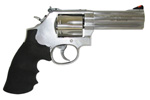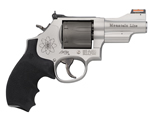Categorical Archives
Advanced - (5)
Beginner - (32)
Blog Matters - (1)
Chronicles of a New Shooter - (5)
Events - (3)
Gun and Product Reviews - (23)
Intermediate - (10)
Internet Resources - (5)
Legal Issues - (4)
Maintenance - (8)
On a budget - (6)
Purchasing - (9)
Safety - (6)
Technique - (7)
WECSOG - (6)
Monthly Archives
August 2007
January 2006
November 2005
August 2005
June 2005
March 2005
February 2005
January 2005
December 2004
November 2004
October 2004
September 2004
August 2004
May 2004
April 2004
March 2004
February 2004
January 2004
December 2003
November 2003
October 2003
September 2003
Contributors
Gun Links
Firearms InstructionArmed Females of America
Assault Weapons Ban Sunset
Black Man with a Gun
Dave Kopel
Educate the USA
Firearm News
Flashbunny
G&A_Forum
Garand Collectors Association
GOA
Grass Roots North Carolina
Gunnyragg's Forum
Gun Owners Alliance
John Ross
JPFO
KeepandBearArms.com
Law Library of Congress
Livefire with Larry Pratt of GOA
Message For AOL Users
Mike’s NRA High Power Competition Page
NRAWOL
Rocky Mountain Gun Owners
Ron Paul Archives
2nd Amendment Coalition
Second Amendment Foundation
Stephen P. Halbrook
Tennessee Firearms Association
The_Cato_Institute
The Claremont Institute
The Colorado Freedom Report
The Gun Zone
The Liberty Belles
Tom Gresham’s Gun Talk
U.S.Code from Cornell
« WHY WE SHOOT |
Main
| Range Report: Para-Ordnance LDA (.45) »
If I could only have one handgun to last a lifetime, it would be a .357 revolver with a four inch barrel, adjustable sights, in stainless steel. Lo and behold, that's the gun I shot tonight in the form of Smith & Wesson's 686. Revolvers are also much less picky than automatics about the ammo they shoot. A .357 can shoot light-kicking .38 Specials, higher-velocity .38 +P rounds, and full-on .357 Magnums, depending on how you want to balance recoil and velocity. They also shoot a wide variety of projectiles - snakeshot, hollowpoints, Glaser safety slugs, ball ammo, or flat, target-punching wadcutters. The 686 uses S&W's L frame (the "large" medium frame), which is sturdy enough to cycle tens of thousands of rounds of .357 and soak up the recoil, though .38 Special loads will be more comfortable for the shooter. With a four inch barrel it balances and points well. Besides which, it just feels good. "Comfortable heft" isn't a cliche with this gun. The S&W lockwork is smooth and predictable. Once I got used to the two-staged trigger, I could squeeze through the first stage to rotate the cylinder and cock the hammer, then squeeze gently through the short, final stage to drop the hammer. Shooting one handed with my offhand in my back pocket also produced high-scoring targets. Sight picture is excellent. For best accuracy, you can always cock the hammer and shoot single action. Minor nitpick: the S&W stock rubber grips felt great, but about half the time the top of the grip blocked one of the empty hulls from ejecting just right. I'd probably replace them with slimmer boot grips. One of the most radical S&W .357s is the 386PD, a K frame, Scandium/Titanium model with light-gathering sights that fires seven rounds and weighs just 18.5 ounces. There's also the Performance Center 627, which holds eight rounds. It's an all-steel N frame with a five inch barrel. Weight is 44 ounces.November 16, 2003
 Why would I prefer a revolver as my one and only gun? Simplicity, for one. With even minimal maintenance, such a gun will last a lifetime. Revolvers are easy to clean, and there are relatively few parts. Unlike an automatic, a revolver has only a few springs, and none of the springs are compressed when the gun is stored, so they last a long time.
Why would I prefer a revolver as my one and only gun? Simplicity, for one. With even minimal maintenance, such a gun will last a lifetime. Revolvers are easy to clean, and there are relatively few parts. Unlike an automatic, a revolver has only a few springs, and none of the springs are compressed when the gun is stored, so they last a long time.  Smith & Wesson has a wide variety of .357s in different metals, barrel lengths, sights, and capacity (from five rounds to eight). At the lower end of the weight scale is the 340 at 12 ounces and five shots with a shrouded hammer. The weight savings are due to the smaller J frame and the use of Scandium and titanium instead of steel. I'll test one of the S&W titanium Airlites soon.
Smith & Wesson has a wide variety of .357s in different metals, barrel lengths, sights, and capacity (from five rounds to eight). At the lower end of the weight scale is the 340 at 12 ounces and five shots with a shrouded hammer. The weight savings are due to the smaller J frame and the use of Scandium and titanium instead of steel. I'll test one of the S&W titanium Airlites soon.
